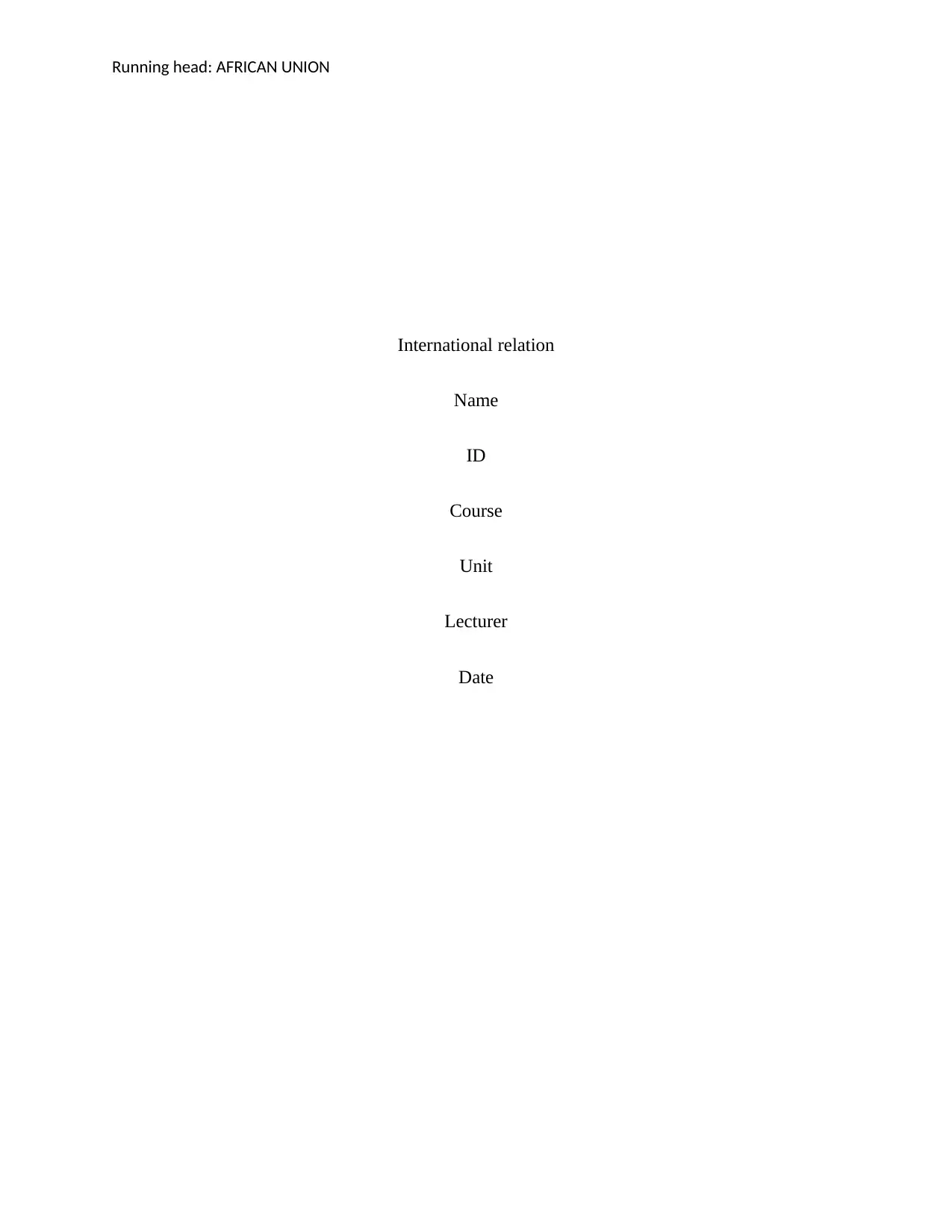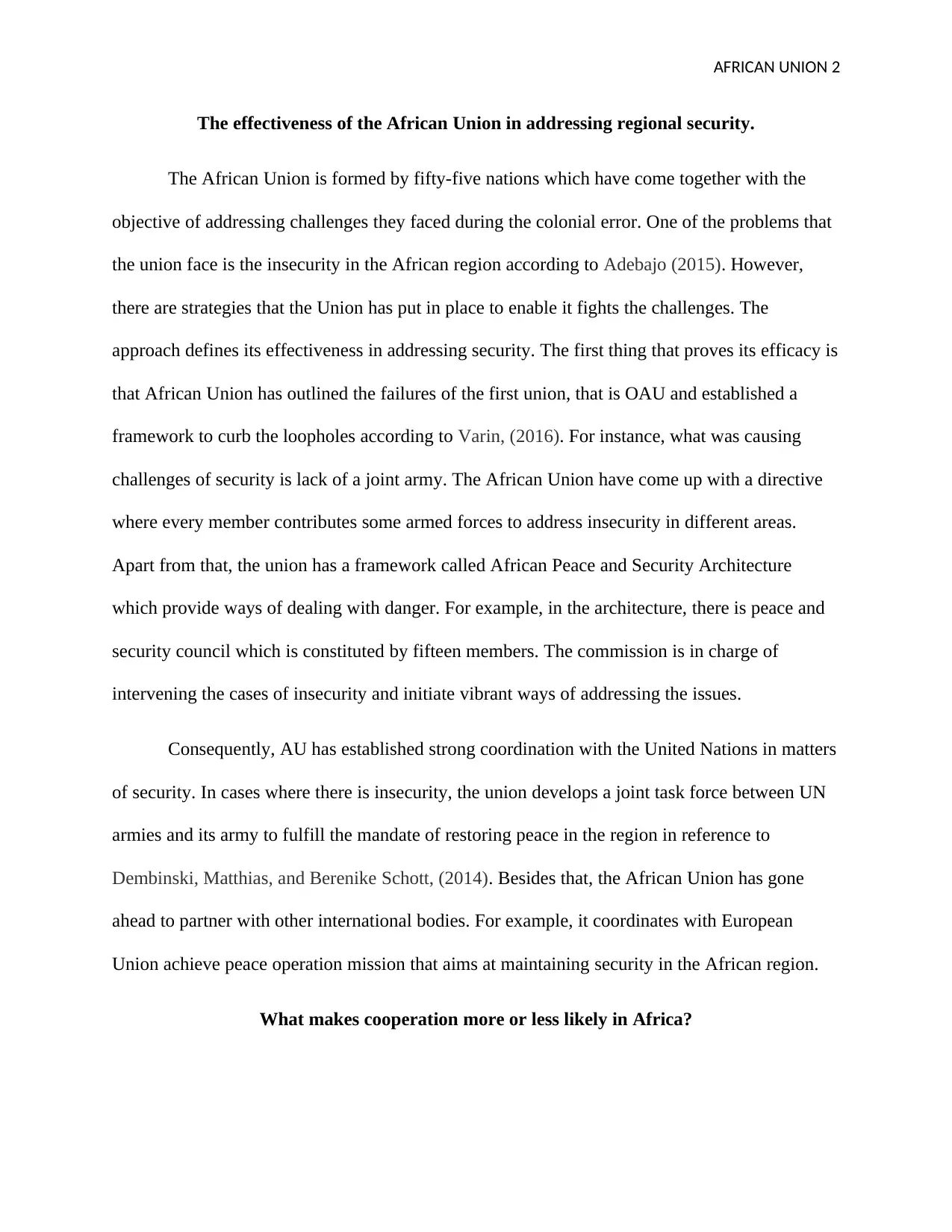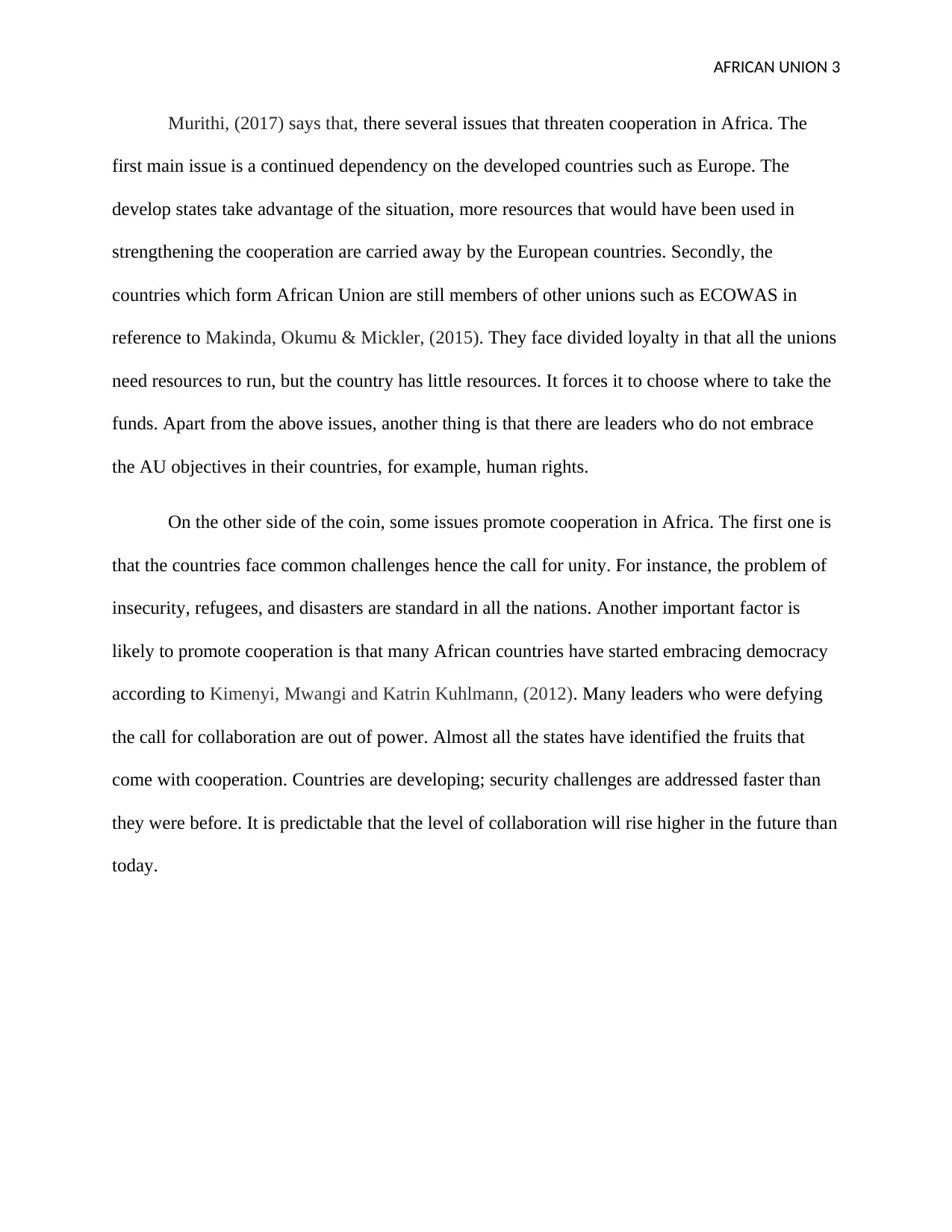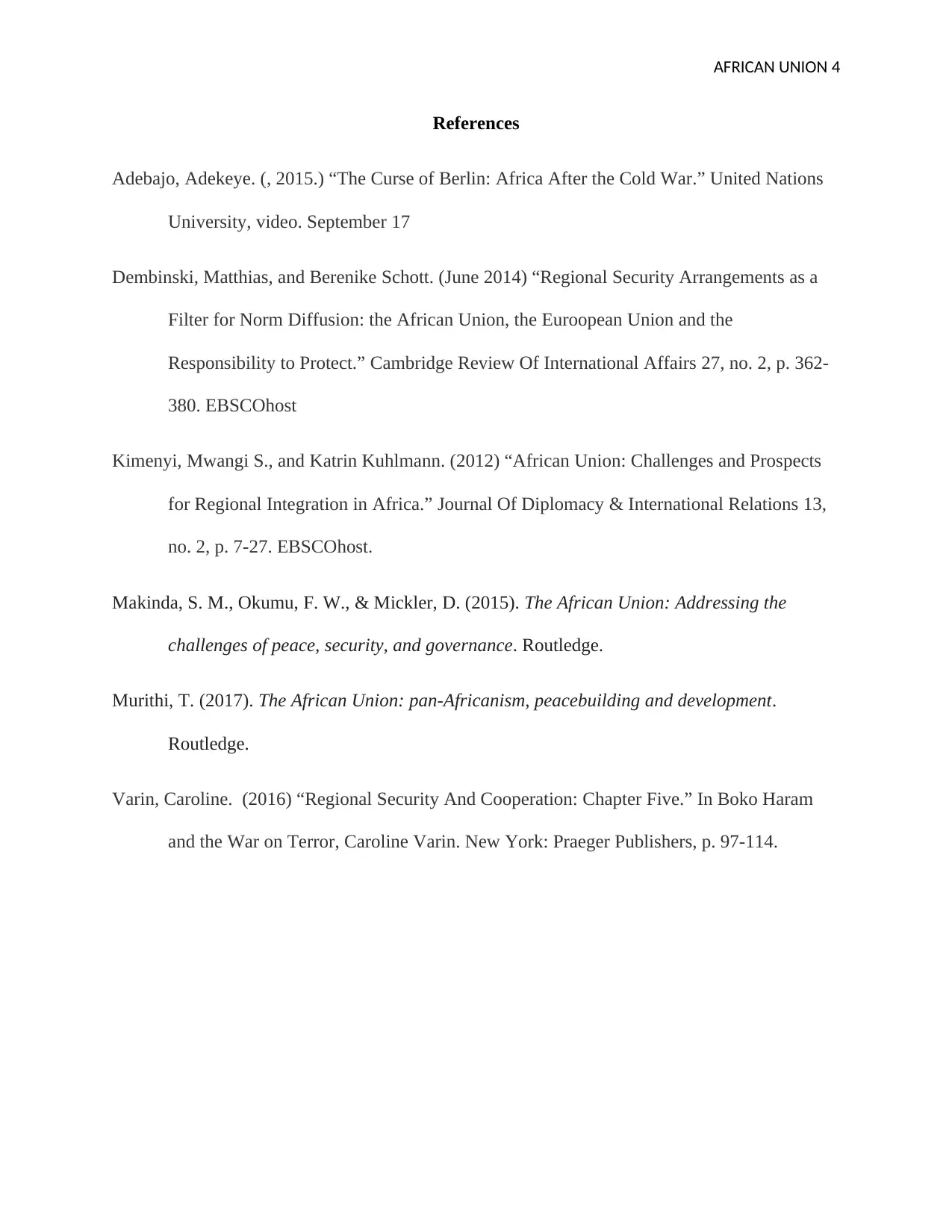Analyzing African Union's Approach to Regional Security Issues
VerifiedAdded on 2023/06/05
|4
|863
|96
Essay
AI Summary
This essay examines the effectiveness of the African Union (AU) in addressing regional security challenges, highlighting its establishment, frameworks, and collaborations. It identifies the AU's strategic approach, including the African Peace and Security Architecture, and its coordination with the United Nations and the European Union. The essay also explores factors that either promote or hinder cooperation within Africa, such as dependency on developed countries, divided loyalties among member states, and varying levels of commitment to AU objectives. Conversely, common challenges like insecurity and a growing embrace of democracy are identified as drivers of cooperation. The analysis concludes that while challenges remain, the AU's collaborative efforts are showing promise in fostering development and addressing security issues across the African continent. Desklib provides access to this essay along with a wealth of study resources and solved assignments for students.
1 out of 4











![[object Object]](/_next/static/media/star-bottom.7253800d.svg)